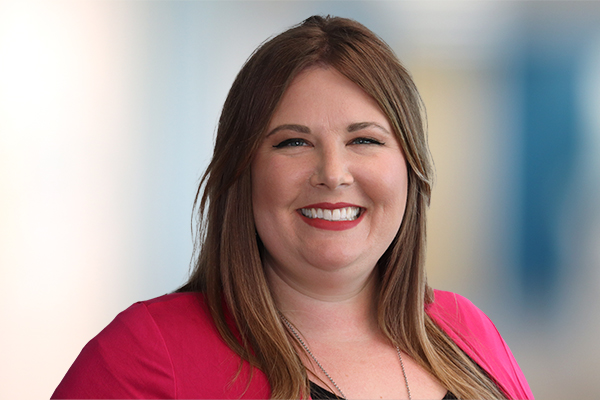Frequently Asked Questions
Eligibility
What are the eligibility requirements for students and faculty mentors?
Applicants must be full-time, doctoral-level graduate students who have been admitted to candidacy within a department on one of the University of Nebraska campuses. Candidacy is defined, for the purposes of this fellowship, as having completed all scholarly activities required for the doctorate, except for the dissertation (ABD).
Candidacy must be achieved by December of the application year. An exception to this criterion will be considered should the student’s dissertation advisor assure that the dissertation project will be approved by the student’s committee by the start of the fellowship funding date, which is typically July 1 of the funding year. The dissertation advisor should address this in their letter of support. Applicants must work closely with faculty mentors who are full-time employees at one of the NU campuses.
Application
Can students from any department apply?
Yes, students from any department that confers a doctoral degree can apply. We encourage applications from fields not traditionally represented in early childhood, such as public health, music, art, anthropology, etc. For instance, a fellowship was awarded in 2016–17 to a neuroscience student doing primate research. Applicants should provide clear and reasonable explanations for how their research has implications for early childhood, defined as prenatal/birth through age 8.
Comprehensive Exam
Do I need to pass my comprehensive exam to be eligible? Do I need to be finished with classes?
We require applicants to be admitted to candidacy within their department by December of the application year. Although we have no specific requirements regarding comprehensive exams or coursework, students are advised to consider their departmental requirements for candidacy. In other words, if your department requires you to pass your comprehensive exam before candidacy then we would expect this to occur before December of the application year.
Applicants are required to submit their Admission to Candidacy Form (or provide it at a later date, if applicable).
Program Requirements
If awarded, what are the requirements of the Graduate Scholars program?
Students and faculty mentors must commit to attend two events sponsored by the Buffett Institute on one of the NU campuses. Scholars present their proposed research at a reception at the beginning of the fall semester and their project results at a final presentation at a culminating seminar at the end of the spring semester. Students also participate in a midyear check-in via email with Buffett Institute staff (December–January). Students may be invited to additional Institute events throughout the fellowship year.
Application Deadlines
When are applications due?
Information about the application process is published in February of each year, and applications are typically due in March or April.
Letters of Intent
Are letters of intent required?
No, letters of intent are not required.
Grant Award
What is the maximum grant award? How can the funds be used?
The maximum grant award is $25,000. Grants are intended to support the applicant’s salary, tuition, research assistance, and direct research expenses. Salaries should be consistent with assistantship rates from the students’ home departments.
If students intend to receive concurrent funding from another source (i.e., another grant or assistantship), the multiple roles must be justified in the biographical sketch and incorporated into the budget. Indirect costs, capital costs, and computer purchases are not allowed unless specifically needed for the project and justified sufficiently.
Budget Template
Is there a specific budget template?
The budget is limited to one page, single-spaced (a spreadsheet may be used), and the budget justification is limited to two additional pages, single-spaced. We do not require a specific budget template, but you can find a useful example here.
Fund Availablity
Should I receive the award, when will the funds be available?
Funding can begin immediately after the award winners are notified (by the end of June). Funds will not be released until IRB approval has been received.
Application Process
How long is the application?
Applicants must limit their application to 24 pages, not including appendices. Specific page and formatting requirements can be found in the RFP.
Application Format
How should the application be formatted?
Applications must be in Times New Roman (TNR), 12-point font, except for footnotes, which may be TNR 10-point font.
All application materials must be formatted to fit 8½ x 11 paper with 1-inch margins all around. Applicants should include page numbers for each page within the application. The final application should be one file in pdf format. Applicants should use the naming convention: lastname.firstname.FinalProposal.pdf
The proposal should be consistent with the format and style guidelines for the latest edition of the Publication Manual of the American Psychological Association. The research should comply with the ethical standards detailed in the Ethical Principles of Psychologists and Code of Conduct of the American Psychological Association.
Proposal
Who is the audience for the proposal?
Applicants should assume reviewers possess general knowledge of early childhood but are not necessarily familiar with the specific project topic. Applicants are encouraged to use language free of jargon.
Review Process
What is the review process? Will applicants receive feedback?
Applications will be reviewed and evaluated by a panel consisting of Buffett Institute staff and faculty members from the NU system. Outside consultants may be used as needed. Feedback will be provided to applicants after final awards are announced.
Notification of Award
When will applicants know if they have received the award?
Applicants will be informed by the end of June.
Faculty Mentor
What is the role of the faculty mentor in preparing the proposal?
Applicants are encouraged to work closely with their faculty mentors in preparing their proposals. The proposal should represent the work of the student; however, faculty mentors are encouraged to review at least one draft of the proposal and provide constructive feedback.

COOKIE USAGE:
The University of Nebraska System uses cookies to give you the best online experience. By clicking "I Agree" and/or continuing to use this website without adjusting your browser settings, you accept the use of cookies.

